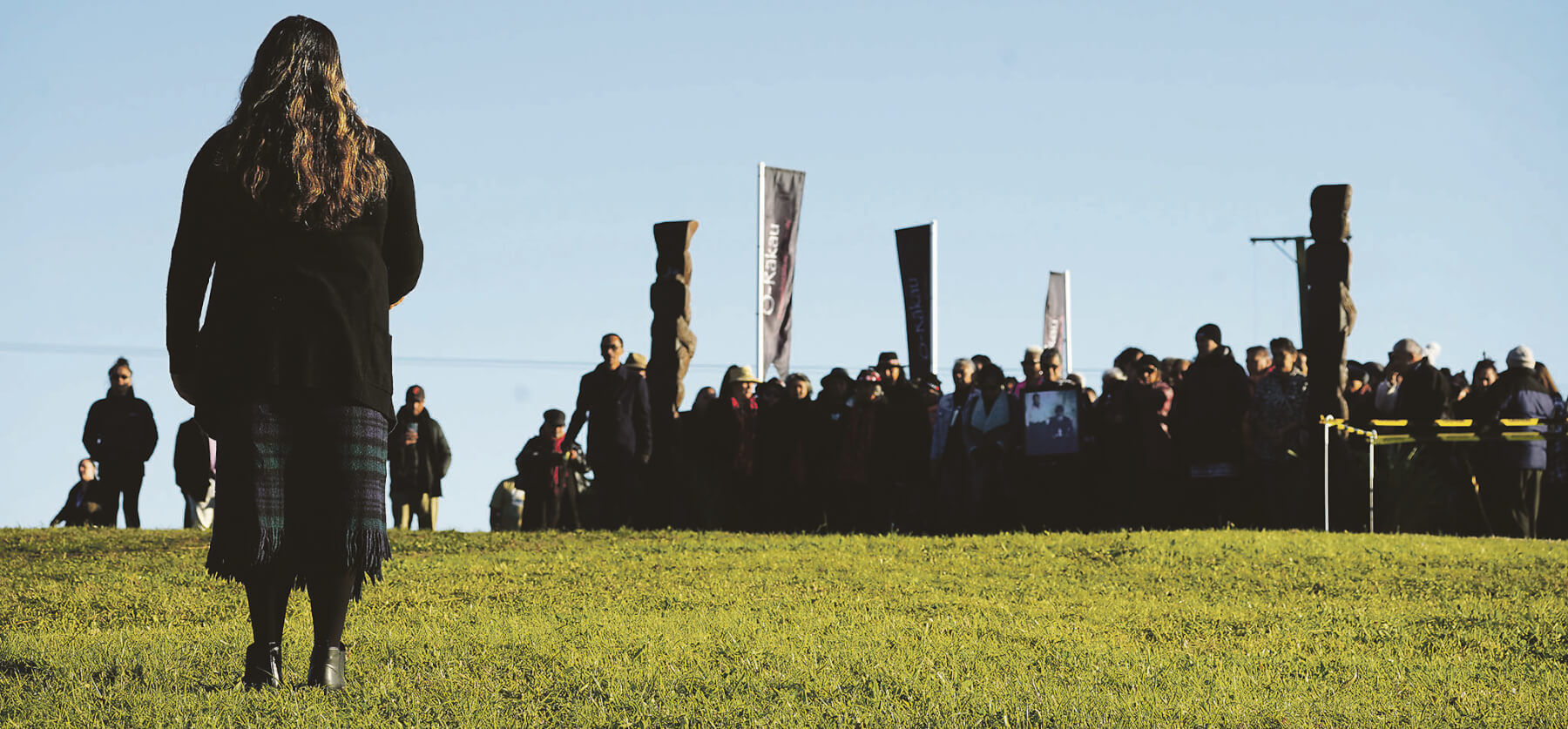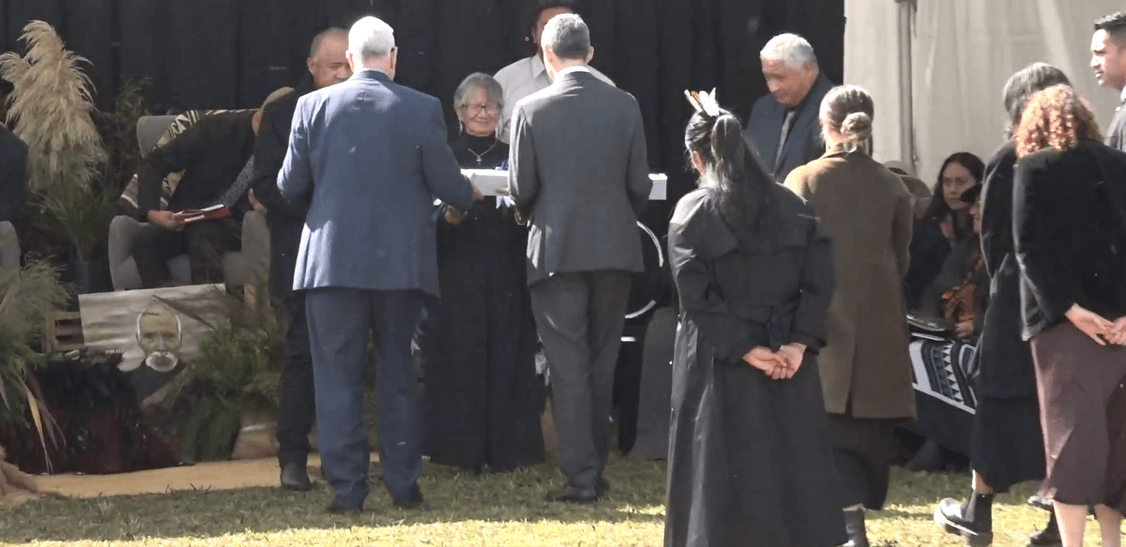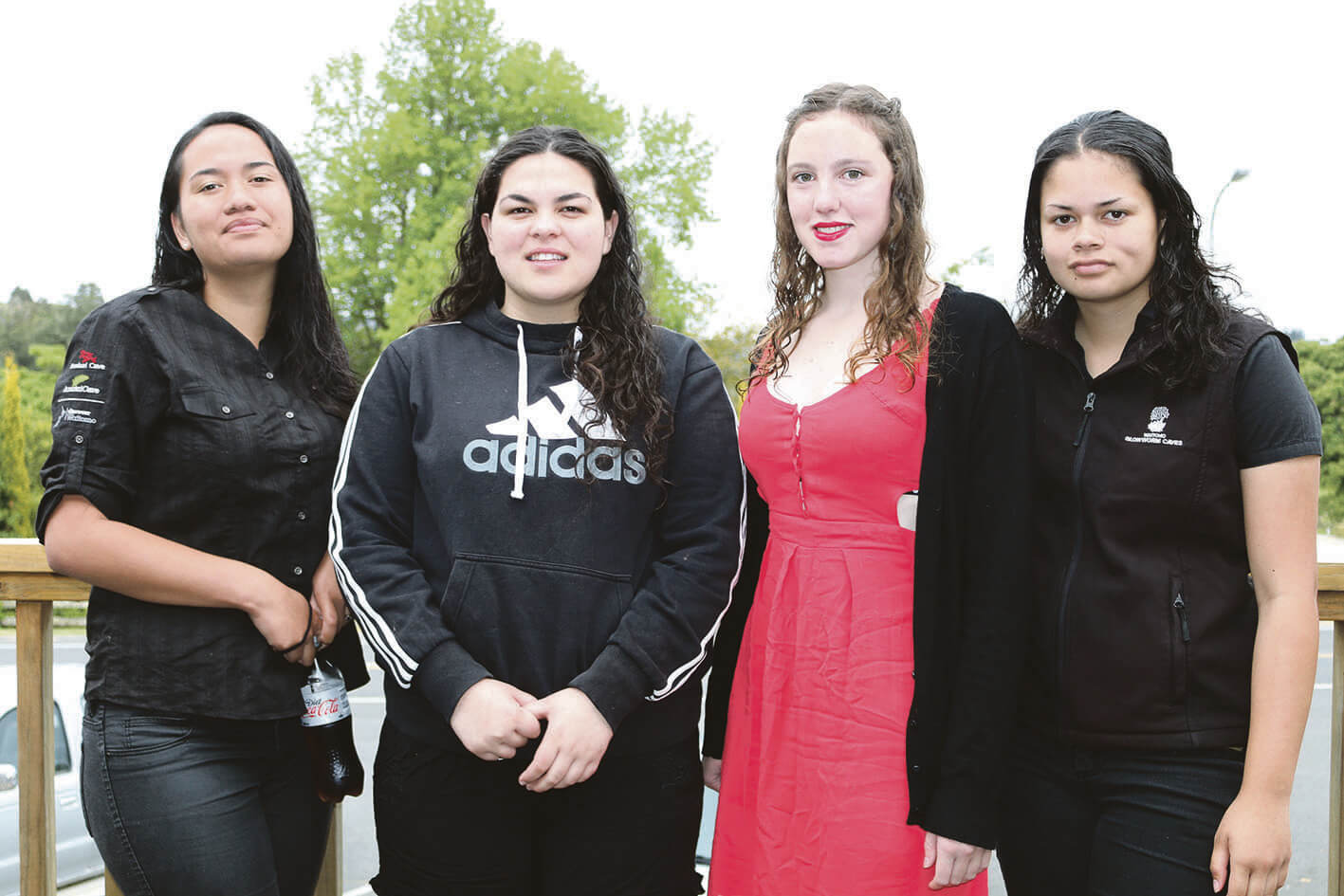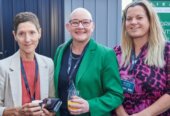The contribution of Ōtorohanga college students to the teaching of Māori history was acknowledged at this week’s commemorations at O-Rakau,
A significant petition, driven by the Waitomo rangatahi a decade ago, was returned as taonga to iwi.
The petition, inspired by students’ visits to O-Rakau and Rangiaowhia, called for a day to be set aside to remember the New Zealand wars.

It was an ealy morning welcome for whanau and manuwhiri. Photo: Te Nehenehenui
The document, featuring the 13,000 signatures the group – Leah Bell, Waimarama Anderson, Zak Henry, Tai Te Ariki Jones, Rhiannon Magee and Kiana Ormsby – collected was presented to the Government in 2015.
Then they were aged 14 going on 15, and supported by adults including Mariana Papa, deputy principal of Te Wharekura o Maniapoto.
Students who attended Te Wharekura o Maniapoto had grown up knowing about O-Rākau, and found it “gobsmacking” to see other students playing and not paying attention at the battle site, Leah said.
“The thing that opened it up for me was our kuia being present, and hearing their mourning, their cries,” – Waimarama Anderson.
“They had no idea where they were – they just thought it was a day out of school.”
Kiana reflected on the fact that they had not been taught about t.
So started the petition – a rangatahi driven movement, but with adult encouragement.
Their work did not bring about a day of commemoration – but did have wide-reaching consequences.
“The biggest thing that came out was having the petition tabled at Parliament in front of the Maōri Affairs Select Committee,” Leah said.
It did result in $4 million being provided to commemorate the New Zealand wars.
A wave of public commemorations in places including Te Tai Tokerau, Waitara and O-Rākau offering “great education,” afterwards moved around the regions, albeit interrupted by Covid.”
A ripple effect flowed on from that, Leah said.
“We’ve had wonderful documentaries, like RNZ’s documentary, Stories of the New Zealand wars.”
Waimarama said she had been told that it “opened up a space for our Aboriginals to be acknowledged, in Australia, with the opening of a museum.”
“They feel similar to how we feel here.”
Leah said the introduction of education on this kaupapa in schools had been another big thing coming out of the petition.
Now in their twenties, the group remain connected through family and community.
The petition supporting awareness of the land wars also backed the introduction of these local histories into the New Zealand curriculum.
The story of the taonga began at O-Rākau, a decade earlier. But not on the anniversary itself – just beforehand.
“It wasn’t started at the 150th. We visited O-Rākau and Rangiaowhia on a school excursion; and Waimarama and myself were very moved.”
The day was a “momentous” occasion: not the average class visit, but three busloads of people including kuia and kaumātua from many places as well as Ngāti Apakura, the tangata whenua of the battlefield. Among this group, the knowledge of what happened at O-Rākau was shared.
Those attending realised that this knowledge was not widely understood across the community, and had not been told from a Māori perspective, over the past 150 years.
Waimarama said the emotion of the day impressed on her the importance of the kaupapa, and also the way the story had never widely been told in the community through Māori eyes.
“The thing that opened it up for me was our kuia being present, and hearing their mourning, their cries.

The petition is received by Waimarama Anderson, Leah Bell, Tai Te Ariki Jones and Kiana Ormsby.
Following that was the knowledge and the whakapapa and the history of what happened here.”
“It was unknown to me, before we came here.”
“The tangata whenua who were here, to share the past and acknowledge those who fell here, they are the ones who nourished the soil that we are standing on.”
Soon afterwards, speaking at the 150th itself, Leah said that comments by politician and broadcaster Tukoroirangi Morgan made it public.
She recalls him saying students from Ōtorohanga college had collected 10,000 signatures… “which we didn’t at that stage – but then we thought, I guess we’d better go out and get 10,000 signatures.”
Kiana Ormsby said the group took the petition to “every single opportunity that was available” including events such as Polyfest and the regatta at Tūrangawaewae.
They petitioned face to face in their school uniforms – at places like The Warehouse as well as at large public events.
Whanau members also helped out by taking signature papers when they went out and about.
At times, they were denied spots in public areas.
“We were just kids – so it was kind of hard to communicate the importance with adults. That was the hard part.”
The challenge was how to get across “that we as kids, really really need your signatures”.
They got them, and exceeded their target to reach over 13,000 signatures.
“We did it of our own volition, but we felt a lot of responsibility,” Leah said.

Four of the students pictured in 2015 – from left, Waimarama Anderson, Rhiannon Magee, Leah Bell, Tai Te Ariki Jones.








